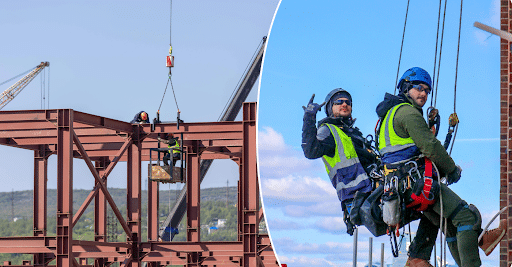Choosing a water heater for your home involves more than just picking one off the shelf. It’s a decision that significantly impacts your daily comfort, energy consumption, and utility bills.
The debate between traditional and tankless water heaters is one many homeowners face. Traditional water heaters, while popular, can be energy-inefficient, whereas tankless water heaters despite their higher upfront cost, offer long-term energy savings.
This article will delve into the functionality, advantages, and drawbacks of both types. The aim is to guide you towards an informed decision that aligns with your household’s unique needs and budget.
Table of Contents
Understanding Traditional Water Heaters
Traditional water heaters, often referred to as storage tank water heaters, are the most common type in homes today.
They operate by storing and heating large water in a reservoir, typically ranging from 20 to 80 gallons. The hot water is released from the top of the tank when you turn on a tap, while cold water enters the bottom to be heated.
Understanding Tankless Water Heaters
Tankless water heaters, or on-demand systems, heat water directly without the need for a storage tank. When a hot water tap is turned on, cold water travels through a pipe into the unit, where it’s heated by an electric element or gas burner.
Key Considerations When Choosing a Water Heater
When choosing a water heater for your home, it’s important to consider several key factors:
- Energy Efficiency: Consider the energy efficiency of the unit, as this can greatly impact your utility bills. Tankless water heaters tend to be more energy-efficient than traditional ones as they heat water on demand, thereby avoiding the standby energy losses associated with keeping a tank full of hot water.
- Upfront and Long-term Costs: Both the initial cost of the unit and its installation should be considered. Traditional water heaters generally have lower upfront costs, but tankless heaters can offer significant energy savings over time.
- Space Availability: Traditional water heaters require more space due to their large storage tanks, whereas tankless heaters have a compact design. It’s important to consider the space available in your home when choosing a water heater.
- Hot Water Demand: The size of your household and your hot water usage patterns are crucial. If your home has high hot water demand, you may need a tankless system that can provide a continuous supply of hot water. On the other hand, for homes with less frequent hot water usage, a traditional water heater may be sufficient.
- Installation Requirements: The installation of a tankless heater can be more complex, potentially requiring upgrades to your home’s electrical system or gas lines. It’s important to factor in these potential additional costs when making your decision.
- Maintenance and Lifespan: Tankless water heaters typically require professional maintenance but usually have a longer lifespan compared to traditional units. Consider the potential long-term costs of repairs and maintenance when choosing a heater.
- Fuel Type: The most common fuel types are electricity, natural gas, and propane. Your choice of fuel can affect the unit’s operation costs, efficiency, and installation requirements.
Comparative Analysis: Tankless Vs. Traditional Water Heaters
When evaluating the difference between tankless and traditional water heaters, it is crucial to examine key criteria, including performance, cost, efficiency, and suitability for various household sizes.
Tankless Water Heaters:
- Performance: Provides continuous hot water on demand.
- Energy Efficiency: High energy efficiency as they heat water only when necessary.
- Cost: Higher upfront costs, including the cost of the unit and installation, but can offer long-term energy savings.
- Installation and Maintenance: More complex to install, may require upgrades to home infrastructure, and requires professional maintenance.
- Size and Space: Compact design, ideal for homes with limited space.
- Suitability: Best suited for larger households or those with high hot water demand.
Traditional Water Heaters:
- Performance: Stores a large amount of heated water, but can run out if the hot water demand is high.
- Energy Efficiency: Less energy-efficient as they continuously heat the stored water.
- Cost: Lower initial costs, including cheaper units and simpler, less costly installation.
- Installation and Maintenance: Easier to install, compatible with most existing setups, and require less stringent maintenance.
- Size and Space: Takes up more space due to the need for a storage tank.
- Suitability: More suited for smaller households with a moderate demand for hot water.
Expert Opinions
Industry experts often recommend tankless water heaters for their energy efficiency and longevity, despite the higher upfront cost.
As for future trends, the industry is moving towards more eco-friendly solutions, suggesting a rise in the popularity of energy-efficient systems like tankless heaters.
Conclusion
Both traditional and tankless water heaters have their unique advantages and drawbacks.
The choice between the two hinges on your budget, space constraints, hot water needs, and energy efficiency priorities. Understanding these aspects homeowners can make the best choice for their household.





